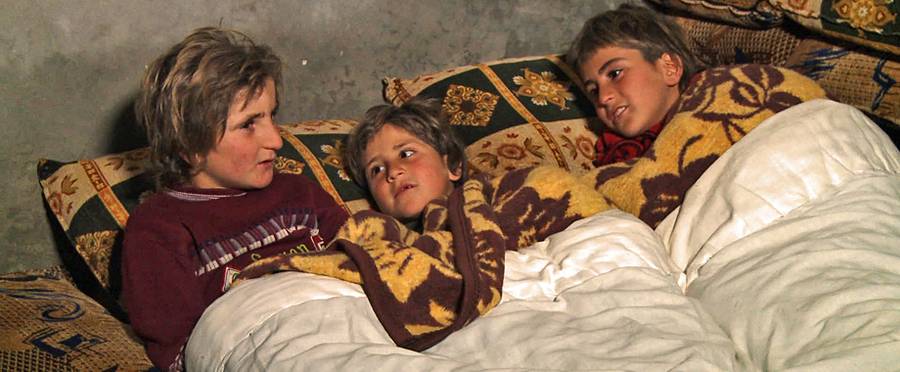Of Fathers and Sons
Director: Talal Derki.
Watched on: Kanopy.
Rating: 2/5.
After spending 99 minutes with the radical jihadists and their young male offspring in Talal Derki’s Of Fathers and Sons, it may be time to admit that the last few years of documentaries set in Syria, Afghanistan, and Iraq have finally reached the point of diminishing returns. How many more films do we need populated by Islamic fundamentalists endlessly muttering “God is great”; how many more films consisting of jittery handheld behind-the-lines footage; how much more time do we need to spend wandering around the foreign policy wreckage of the Middle East? Are there no other subjects worthy of a film festival’s precious allocation of scheduled screening times?
Personally, I’d decided that after Sebastian Junger’s and Nick Quested’s comprehensive and engrossing Hell on Earth: The Fall of Syria and the Rise of ISIS, there was really no point in watching another film about either the conflict or the havoc-wreaking terrorists. But Derki’s film promised something a little different, an insider’s look into the indoctrination of terrorists-in-training, specifically the sons of veteran jihadists living a stark existence in a Northern Syria redoubt.
Derki fled the area, his former homeland, when Al Qaeda moved in. He convinced Abu Osama, a run-of-the-mill zealot with two sons, to let himself and a cameraman come back to document how jihadism is instilled in the young. Derki tells us in an introductory voice-over that he pretended to be sympathetic to their cause in order to avoid being killed, but after that initial set-up we don’t hear from the director again until late in the film. This left me wondering for the rest of the running time how Derki was processing his access and complicity in what he was seeing. Was he frightened and anxious? Did he and his cameraman have secret conversations about their fragile lie? Was he truly sympathetic?
Derki compellingly establishes his presence as a way to draw our focus to him and his ruse, and then discards this point-of-view. Why?
I’m guessing that’s him who appears in a couple of casual interview scenes talking to Osama, but I couldn’t be sure. Derki doesn’t seem to know what to do with the incredible access he’s been granted (a documentary filmmaker’s dream), so he ends up filming artless and perfunctory scenes of boys arguing, fathers disciplining them, and conversations and aphorisms made up of the numbing, narrow-minded drivel spouted by fanatics.
Many scenes drift by unexplained: A group of terrified young captives are made to kneel on the floor why a jihadist berates them as though they may or may not be about to be executed, yet we never learn their fate. A group of boys fashion a homemade explosive, play with it, and we watch it explode after they have moved on. The scene cuts to Osama in a hospital, who has lost a foot after a mine he was defusing blew up. But we don’t learn how this happened until several scenes later, as we’re left wondering if we missed some key connection.
Much of the film feels manufactured by an editor to gin up tension, since it appears the filmmakers captured little of it organically. A later sequence of the boys, now young teenagers, engaged in serious live-fire training sequences, is a disturbing but all too brief montage, one that suggests the different film that could have been, perhaps a Full Metal Jacket-izing of jihadist robot killers.
It’s obvious that Of Fathers and Sons is meant to unsettle us with the mere sight of these young people, many of them quite handsome, with beautiful smiles and the emotional temperament of kids anywhere, being turned into murderous fundamentalists. But that theme is made clear in the movie’s first twenty minutes. By film’s end, with the director abdicating any responsibility to deepen or enlarge on that theme, I had stopped caring.

